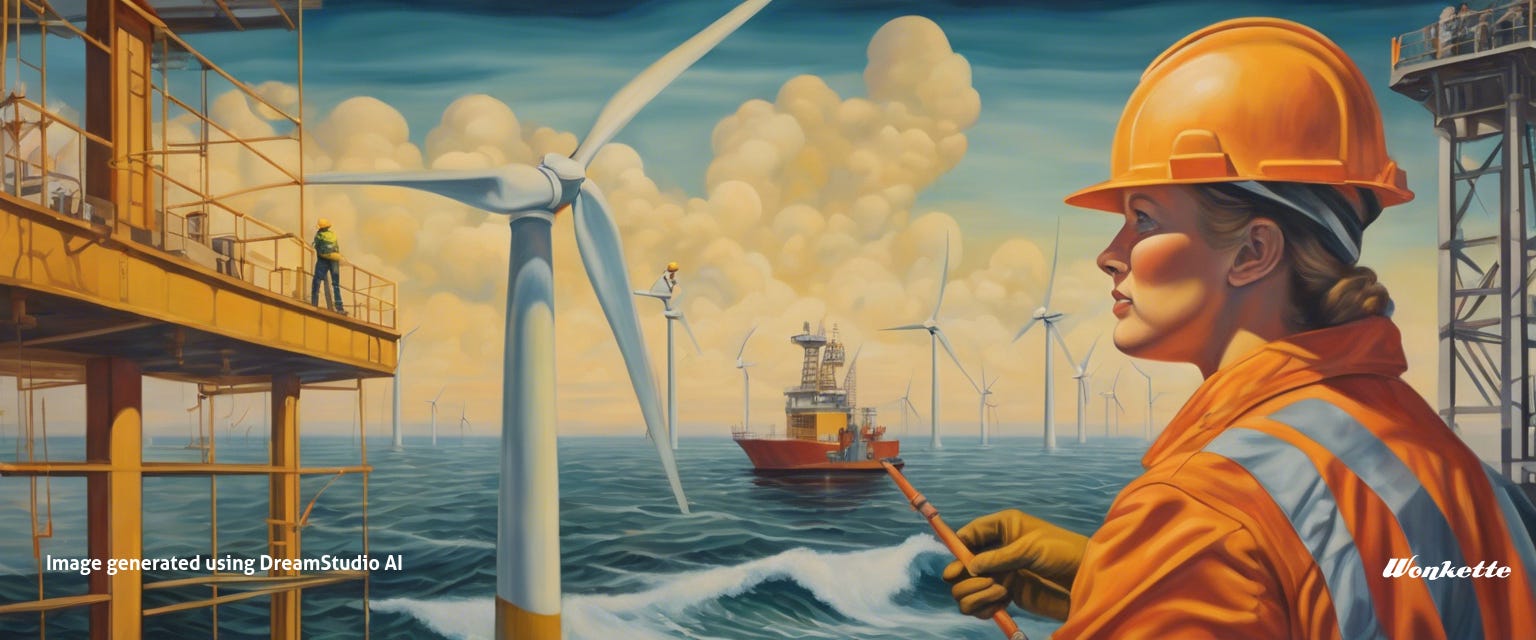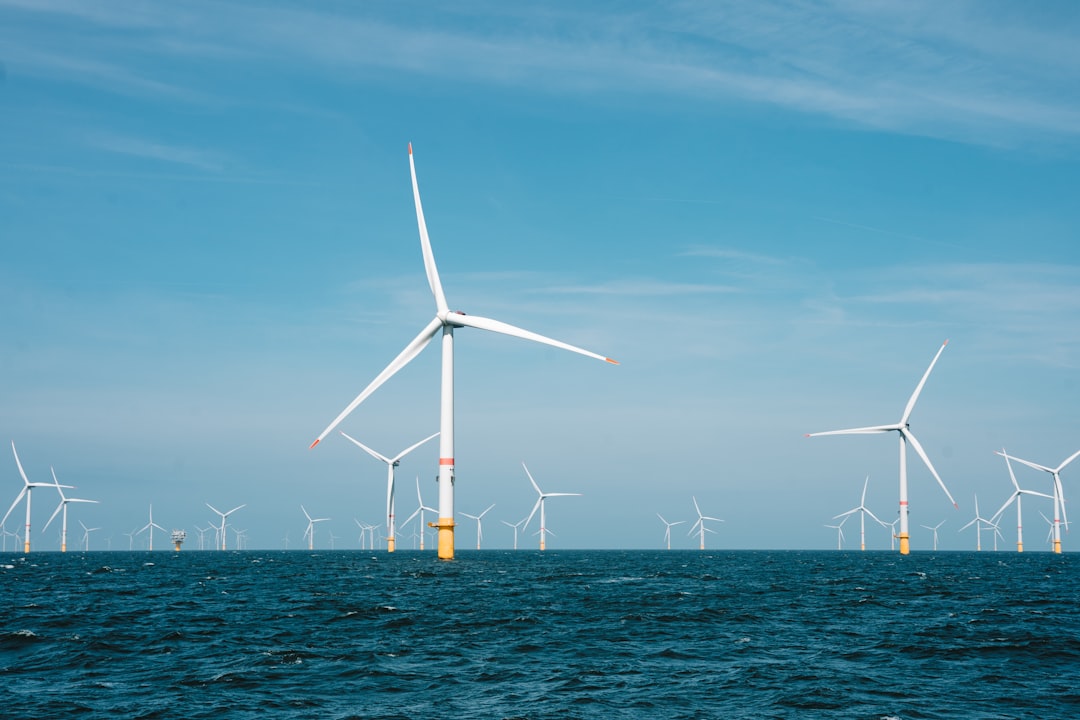How To Convince Americans That Biden's Economy Is Really Pretty Good
Maybe the answer isn't WPA-style murals about green energy, but I want 'em anyway.

We had another strong jobs report Friday, showing solid job growth, a 22nd straight month of unemployment below four percent, and solid but not-likely-inflationary wage growth. The White House marked the news by pointing out that inflation has fallen by two-thirds, and that household wealth and worker pay are higher now than prior to the pandemic.
Also, CNN released a poll this week showing 71 percent of Americans consider economic conditions “poor” (and 38 percent think it’s “very poor”). It’s an improvement from summer 2022, when 82 percent thought the economy was “poor.”
So why the gap between the economic numbers and the way lots of us perceive the economy? And what are the implications for the 2024 election?
Over at the New York Times Thursday (gift link), even before the good jobs report, economist Paul Krugman tried to puzzle out why so many of us think the economy is in the dumps (as for conservatives, he says, forget it, they won’t believe anything is good while Biden is in office).
Unfortunately, Krugman hasn’t yet endorsed my proposal to fund lots of WPA-style murals depicting the benefits of the clean energy transition. He’ll come around, I bet.
Krugman highlighted two other bits of good economic news this week, mostly because they’d actually happened by the time he wrote his column, which was handy.
This week two excellent economic reports were added to the pile. On Wednesday, the Bureau of Labor Statistics reported that in the third quarter, labor productivity rose at an annual rate of 5.2 percent, which is really, really fast. It’s too soon to call a trend, but there is increasing reason to hope that our economy is capable of growing considerably faster than we previously thought. […]
Another report showed that unfilled job openings are down. Last year many economists were arguing that the high level of vacancies meant that we needed high unemployment to control inflation. That gap has now largely disappeared, one of many signs that the economy is healing from the disruptions brought on by the Covid pandemic. And this process of healing explains why we’ve been able to get inflation down without a recession or a surge in unemployment.
And yet there’s still the perception that things aren’t just terrible, but that they’ll never get better. Krugman notes that this is in at least part a normal reaction to a time of high inflation: the rate of inflation has come down, but we still remember the old norms for prices.
This effect may wear off over time; as I wrote not long ago, there has to be some statute of limitations on how far back people look for their sense of what things should cost. One interesting recent analysis suggests that it takes around two years for lower inflation to be reflected in consumer sentiment, in which case Americans might be feeling better about the economy in time for next year’s elections.
Well that would be nice!
None of this is to say that everyone is well-off and riding high; a return to something like economic normality still leaves us in a goddamned capitalist economy. If someone’s in a fruitless job search or struggling to pay the bills, it’s hardly helpful to throw economic statistics at them and sing “everything is fine, everything is fine, everything is fine,” unless you’re Cheekface and you’re being ironical.
Nonetheless, Krugman adds, there’s been very real progress on climate and infrastructure, and a little-noticed but significant reduction in wage inequality that has led to big pay gains for the country’s lowest-paid workers — who may not be answering polls. Then there are the things you may only have noticed if you’ve benefited from them, like the increased Obamacare subsidies that have expanded the number of people with health care coverage, or the student loan relief that has left millions of us free of the fear that we’ll be crushed by debt — and the reforms that’ll make student loan payments less burdensome.
Krugman also notes that Republicans are certainly doing their best to make clear that their alternative to Bidenomics would be a disaster, what with Trump’s “plan” to kill Obamacare and renewed GOP talk of cutting Social Security.
If the economic gains posted by the Biden administration haven’t reached far enough, the fact remains that this administration has been from day one committed to shaping an economy that grows “from the bottom up and the middle out,” not showering the benefits on the wealthy. My favorite billionaire, Nick Hanauer, has an excellent column in Time on that — good guy, we’ll eat him last.
There’s a good argument to make that 2024 may look something like 2022. Even if voters aren’t jazzed about the economy, they may very well consider the weirdos the GOP has running, especially the wannabe dictator for a day who’s likely to be at the top of the ticket, and the Right’s insane efforts to force women to give birth, and decide that no matter what, they’d prefer not to be ruled by a religious fascist minority.
[White House / NYT (gift link) / Time]
Yr Wonkette is funded entirely by reader donations. If you can, please subscribe, or if if you’d prefer a one-time donation, we have just the button you need.
If you’re shopping at Amazon anyway, for books or clothes or torches or pitchforks, this portal gives Yr Wonkette a small cut of sales.










I guess I shouldn't fret too much about the goofy-looking wind turbine the AI generated. Thomas Hart Benton wasn't exactly doing industrial blueprints either.
https://charlesmcquillen.com/thomas-hart-benton-america-today-english-language-arts-lesson-plan/
Hang on, I think I just did a blasphemy, didn't I?
It is extremely refreshing and encouraging that Doc Zoom and others on this entire forum are raising the issue that I can only characterize as "Why are the voters still so dissatisfied even though the economic numbers are so positive and encouraging?"
Because the fact of the matter is, the natives sure appear to me to be getting restless. And in an election year where the very survival of the democratic republic is at stake, no chances can be taken that the voters will just wise up and vote for Biden and the Democrats. Word has to be gotten out by the Dems that they have a plan to address these critically important economic issues and that they have the interests of working people at heart.
The "Kick the Hedge Funds Out of the Housing Market" is a good example of doing just that because even though it may not get passed by our fucked up Congress, it sends an extremely powerful message that the Dems have the people's backs.